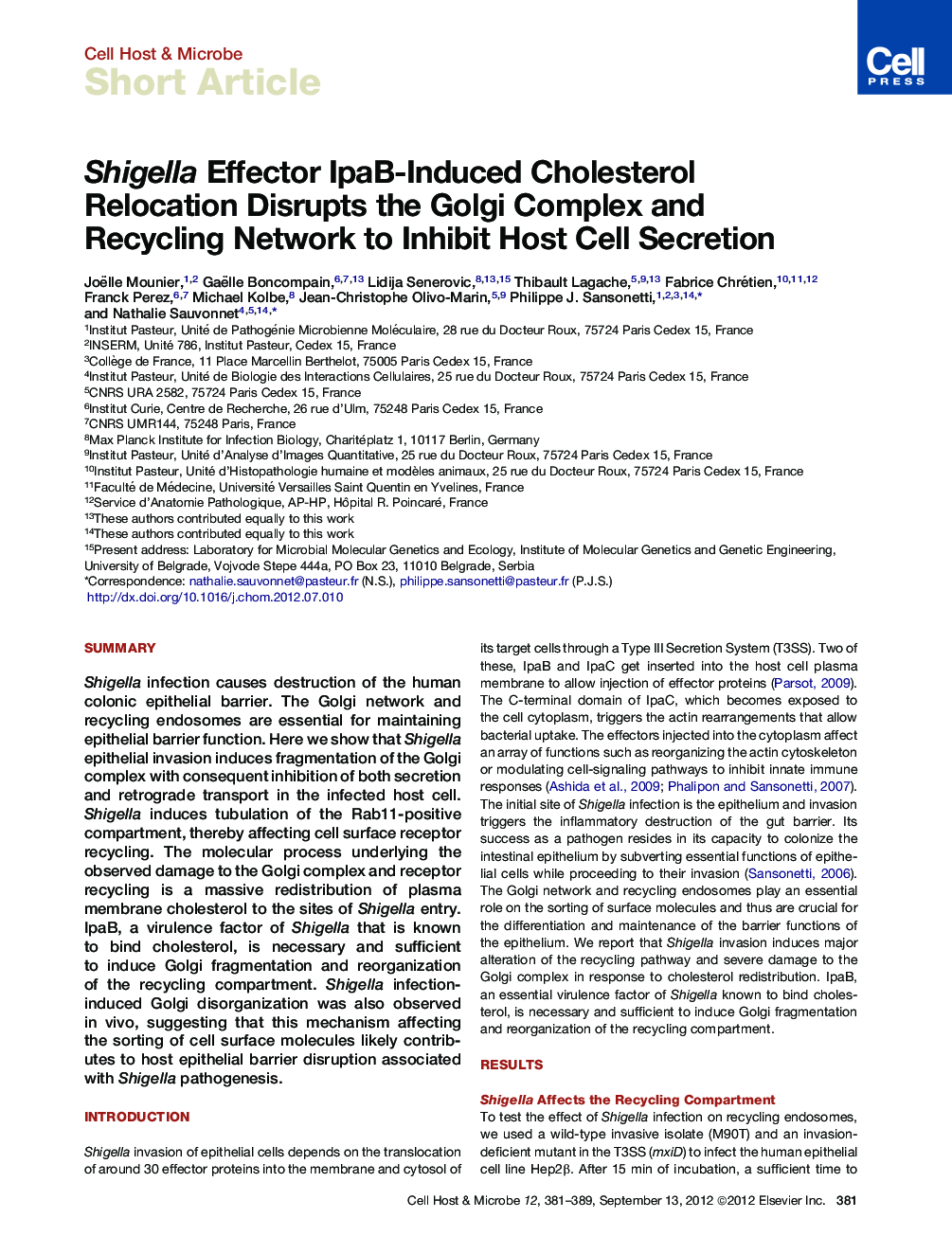| Article ID | Journal | Published Year | Pages | File Type |
|---|---|---|---|---|
| 4361163 | Cell Host & Microbe | 2012 | 9 Pages |
SummaryShigella infection causes destruction of the human colonic epithelial barrier. The Golgi network and recycling endosomes are essential for maintaining epithelial barrier function. Here we show that Shigella epithelial invasion induces fragmentation of the Golgi complex with consequent inhibition of both secretion and retrograde transport in the infected host cell. Shigella induces tubulation of the Rab11-positive compartment, thereby affecting cell surface receptor recycling. The molecular process underlying the observed damage to the Golgi complex and receptor recycling is a massive redistribution of plasma membrane cholesterol to the sites of Shigella entry. IpaB, a virulence factor of Shigella that is known to bind cholesterol, is necessary and sufficient to induce Golgi fragmentation and reorganization of the recycling compartment. Shigella infection-induced Golgi disorganization was also observed in vivo, suggesting that this mechanism affecting the sorting of cell surface molecules likely contributes to host epithelial barrier disruption associated with Shigella pathogenesis.
► Shigella inhibits cell surface receptor recycling ► Shigella disrupts the Golgi network and its secretory function ► Cholesterol delocalization by Shigella entry underlies Golgi disruption ► The cholesterol-binding Shigella effector IpaB disrupts the Golgi network
